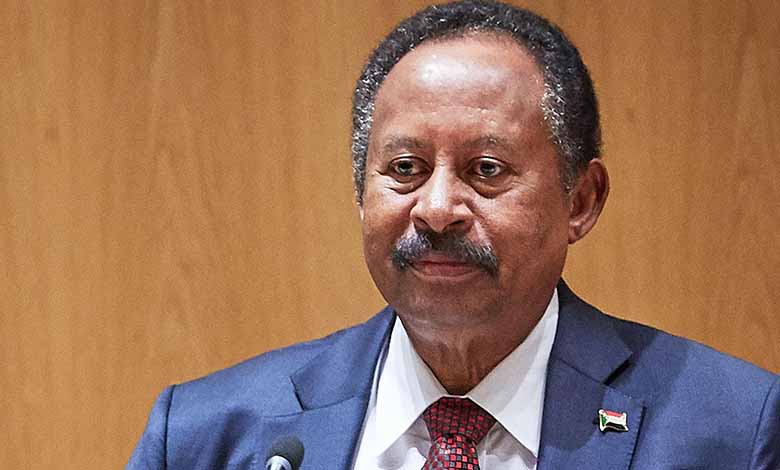Hamdok: Third possible return to resolve Sudan crisis

Sudan continues to suffer from a political crisis and stalemate that has exacerbated the country’s problems at all levels, with no head of government.
Occasionally, there are names of candidates running for prime minister, which Sudanese hope will save their country from loss and improve economic and living conditions.
Washington and the European Union have called on the Sudanese military not to appoint a prime minister unilaterally, without an agreement with the civilian side.
Most prominent candidates
Several names have emerged recently of potential candidates for Sudan’s prime minister, most notably former Prime Minister Abdalla Hamdok, whose return for a third time has not been ruled out by political parties, forces and experts.
He was also named after Nasredeen Abdulbari, the former justice minister in his government, whose name has been linked to amendments to a number of laws that combat militancy and grant many rights to women under the Personal Status Law.
Also on the table is Taha Othman Ishaq, a lawyer and leader of the Sudanese Professionals Association, a prominent member of the June 30 Commission and an independent professional background.
One of the proposed names is Ibrahim Elbadawi, who served as the Minister of Finance and Economic Planning in Hamdok’s government and recently confirmed to local media that he is in contact with more than one party to lead the government.
Elbadawi said a national consensus must exist, including among the youth of the revolution, before he can accept this national mandate. He stressed the need for all forces of the civil revolution to consult to choose a prime minister in order to get the country out of its crisis.
Elbadawi said the Sudanese Sovereignty Council is not qualified to choose a successor to Hamdok, limiting its task to “endorsing only the prime minister chosen by the civilian component.”
Hamdok’s Chances of Return
Hamdok, who served as prime minister twice for the first time on 20 August, was the first prime minister after the fall of Omar al-Bashir’s regime, which had ruled the country for more than three decades.
A second time following the decisions of Sudan’s Sovereign Council President Abdul Fattah al-Burhan on November 21, 2021, but he announced his resignation on January 2, 2022; in a phone call on air.
However, he emerged as the strongest candidate for prime minister again, according to assurances from those involved in the political process in Sudan.
Major General Fadlallah Baramat Nasser, head of the designated Umma National Party, one of the protagonists in Sudan’s political process, was among those who conditionally agreed to Hamdok’s return, following the signing of the final agreement.
“We have no objection to Hamdok’s return, and we have no reservations about him, but the matter is up to him,” he told Sudanese media.
Observers, however, consider Hamdok’s re-naming for the third time as a “trial balloon” to gain more acceptance of the current political process.
Political analyst Abdallah Adam Khater told the Sudan Tribune that “the chance of Hamdok returning to the government is still there, especially as he took sole responsibility after the political forces abandoned him.”
“Hamdok has considerable international acceptance and outstanding efforts for economic reforms, especially the success in removing Sudan from the black list,” he said.
Sources revealed that the Freedom and Change Alliance is divided over Hamdok’s return to the premiership.
Kamal Omar, a member of the Supreme Coordinating Committee for the Framework Agreement, said, “Hamdok has extensive international relations and achieved many successes while heading the government.”












